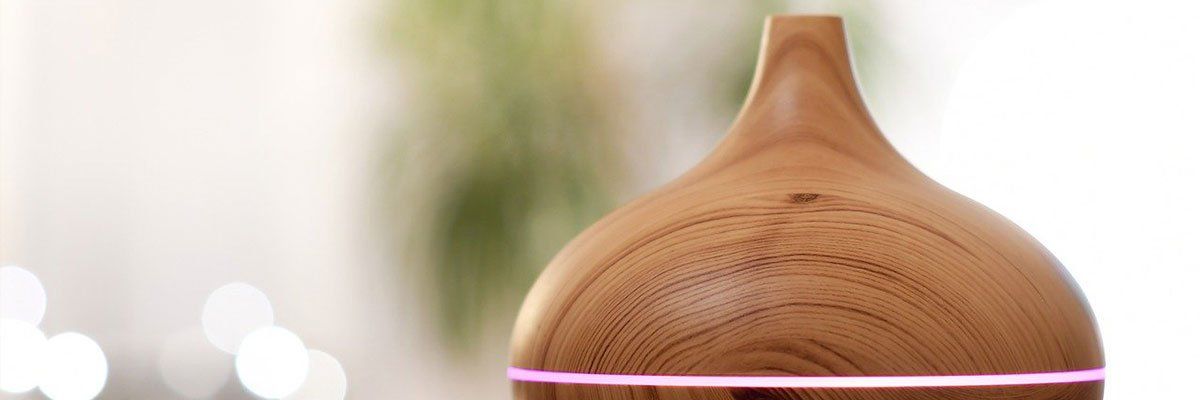5 Simple Maintenance Tips to Keeping Your Custom Closets Pest-Free
George Chowanec • April 28, 2020

You put a lot of time, effort, and money into designing your custom closets. Now that they’re installed, you can’t get enough. As it turns out, neither can pests like insects. How do you keep bugs and critters out of your closet?
The following five tips will ward off pests eager to get into your custom closets:
- Deep clean the closet on a three or four-month basis
- Never put dirty clothes in your closet
- Skip the starch at your dry cleaner
- Buy closet insect repellants
- Try a natural solution like cedar
How does cedar work to keep bugs out? Why does starch attract critters? Keep reading, as we’ll elaborate more on all the above tips so your custom closets
can stay as beautiful as the day you got them.
Got Pests in Your Custom Closet? Try These 5 Maintenance Tips
1. Regularly Deep Clean Your Closet
How often do you clean your custom closets? Maybe you get the itch every spring to go through your wardrobe and donate what no longer fits. The closet is roomier, at least.
Cleaning so little like this will be to your detriment. Insect species like silverfish, beetles, and flying insects will take to an unclean environment like your closet and use it as a breeding ground. You can typically tell this has happened if you see bug droppings and flying bugs each time you enter your closet.
If it’s gotten to that point, then before you do anything else, make sure you get in touch with your exterminator. Then, once your custom closet
is cleared of insects, keep it cleaner in the future.
It’s not enough to open the closet, go in there, and do some light dusting. You want to treat your closet to a deep clean every three or four months. That means picking things up off the floor and shelves to see what’s underneath as well as moving clothes to vacuum and dust those inaccessible areas.
It’s a pain to do this, sure, but it’s one of the more reliable means of keeping bugs out of your custom closets.
2. Wash Your Clothes Before Storing Them in the Closet
The definition of clean clothes is different for lots of people. For example, if you wear a pair of jeans once, some people think that those jeans are still clean if you didn’t sweat much. Others would wash them immediately.
The latter habit is a good one to continue if you want to keep bugs away from your closet. Even if your clothing isn’t sweaty or stinky, after a day of wearing it, it’s still covered in all sorts of bug attractants. From perfume to hair, food stains, and dirt, insects will swarm straight for the dirty clothes.
It’s doubly important to clean leather, wool, and silk garments before adding them back to your custom closet, as clothes moths love to feast on these materials in particular.
What if you have clothes that you’re holding onto but you don’t regularly wear? These can accumulate dust the longer they sit in your closet, so please don’t neglect this part of your wardrobe. Either wash these rarely-the worn clothes yourself or head to your dry cleaner and let them do it.
3. Ask Your Dry Cleaner to Pass on the Starch
If you do visit the dry cleaner often, please request that they don’t treat your clothes with starch going forward.
This can be tough to do, as starch is beneficial in a lot of ways. Starching your dry-cleaned clothes creates a seal around each fiber. This can prolong the lifespan of your clothes, allowing you to go upwards of three wears before going back to your dry cleaner.
You’ll also find that your garments don’t have as many wrinkles when they’re starched. If you do have to grab the ironing board, you don’t struggle to iron your clothes nearly as much as you do when ironing clothing without starch.
Long-term though, starch can pose several problems. It may cause clothing fibers to fray and break if the starch residues get deep into the threads. Starch can irritate your skin, leaving you itchy and red. Most importantly, insects love to feast on clothing starch.
Each time you go to the dry cleaner’s and they add starch to your clothing, you’re giving the bugs in your home a free meal. Unless a garment absolutely needs it, get into the habit of requesting that your dry cleaner skip the starch.
4. Use a Closet Insect Repellant
You’ve started cleaning your custom closets
more often. You now ensure nothing that enters the closets is dirty, and you don’t get your garments starched at the dry cleaner anymore. Still, you’re having a bug problem you can’t quite overcome.
An appointment with your exterminator may be necessary, but before that, you can try a closet insect repellant.
Mothballs, which include deodorant and chemical pesticides rolled into one, are a common solution for closets. The pesticide found in mothballs is typically 1,4-dichlorobenzene, sometimes also called PBD, CBD, p-dichlorobenzene, or para-dichlorobenzene.
You don’t touch the mothballs themselves, as they come in a polypropylene or polyethylene bag. For added protection for your favorite clothes, get a garment bag made out of polypropylene or polyethylene as well, and then zip up the mothballs in the bag with your clothes. This keeps the mothball vapors potent and effective in warding off bugs.
5. Go the Natural Route with Cedar
If you’d prefer not to deal with chemicals when keeping the clothes in your custom closet
pest-free, you don’t necessarily have to. Natural remedies like cedar can be just as effective in sending critters to the curb.
You can use cedar in plank or oil form. Cedar oils are adept at controlling a variety of insects due to a terpenoid known as thujone. This organic chemical will reduce ants, carpet beetles, fleas, termites, cockroaches, and flying bugs in your closet.
You can spray most cedar oils indoors or drop a few cedar oil repellents outdoors at the source. In your custom closet, add cedar planks to drawers and/or shelves.
You may even take things one step further with cedar oil candles or powdered cedarwood. You’d burn these and enjoy not only the pleasing scent, but fewer bugs in your home. Please don’t light a candle in your closet and walk away though, as that’s not safe.
No cedar? No problem! Lavender is a suitable alternative. You can make your own lavender insect repellent by mixing apple cider vinegar or distilled water with lavender essential oil. Fill a shallow container with the vinegar or distilled water, one point five ounces in all. Then, count 30 to 40 drops of the lavender essential oil. Spritz the bug repellant in your closet as needed.
Conclusion
Insects can wreak havoc on your custom closets. Not only can some bug species begin eating away at the closet materials themselves, but they’ll happily munch on your clothes as well. More expensive garments like silk, cashmere, and wool are especially delicious treats that insects will love having free access to.
Through one or a combination of the above methods, you should notice fewer flying critters that detract from your daily routine.


